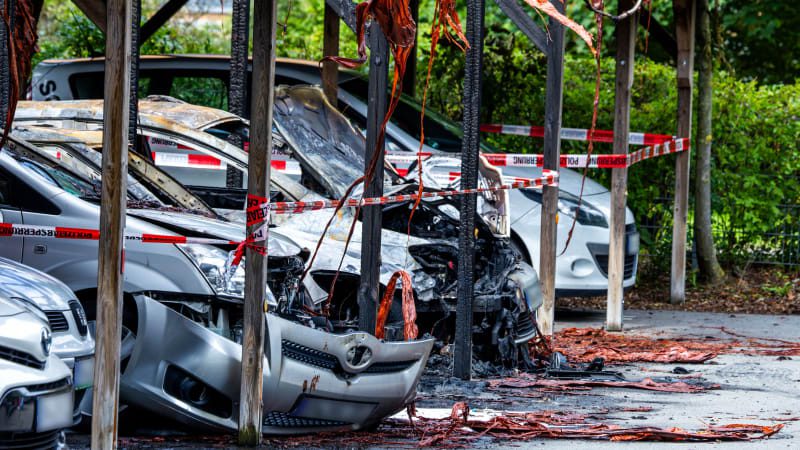Electric cars are less likely to catch fire than gas cars

Yes, electric cars can and do sometimes catch on fire. And it seems such conflagrations are reported in the news on a surprisingly regular basis. This raises a couple of obvious questions. First, how often do EVs actually catch on fire? Second, how does the likelihood of an EV fire compare to the likelihood that a vehicle powered by a gasoline or diesel engine?
That’s where a helpful article — reportedly part of a series of articles, in fact — from The Guardian comes into play. It turns out that EVs are actually much less likely to catch fire than other types of vehicles. “All the data shows that EVs are just much, much less likely to set on fire than their petrol equivalent,” said Colin Walker, the head of transport at the Energy and Climate Intelligence Unit thinktank. “The many, many fires that you have for petrol or diesel cars just aren’t reported.”
The Guardian compiled a list of reported data sets from several countries, including Norway (the country with the highest concentration of electric vehicles in the world), Australia, and from Tesla’s global fleet. In every case, the numbers are conclusive: EVs are much less likely to catch fire than gasoline or diesel vehicles.
So, why are EV fires reported so much more frequently than internal-combustion-fueled vehicles? There are a lot of possibilities, including some that are obvious: because their abundance on the world’s roadways is a relatively new phenomena, because there are plenty of people who are against electrification in general, and because EV fires have a tendency to be quite spectacular (and, yes, potentially more dangerous than other types of fires).
There’s a lot more to the full article that we encourage you to read. But if there’s nothing else you take from the information, at least you’re now armed with the truth.



